Students Begin Three-Day Strike In Universities Across Iran
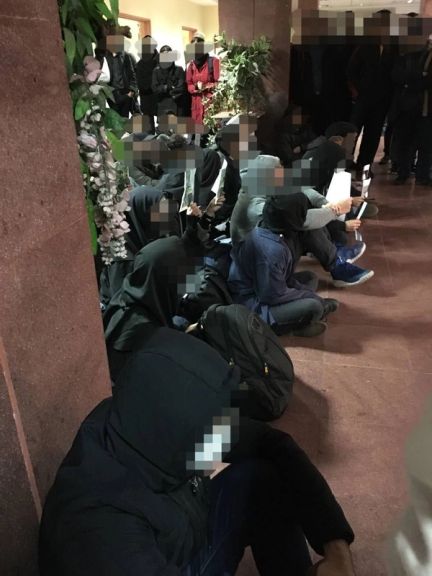
Students at several universities across Iran went on strike Monday and protested by publishing statements in support of ongoing strikes by shop owners and businessmen.

Students at several universities across Iran went on strike Monday and protested by publishing statements in support of ongoing strikes by shop owners and businessmen.
Based on reports and videos received by Iran International Tehran students in the Faculty of Electrical Engineering of the University of Science and Technology went on strike to protest government persecution and arrest of students.
The students of Khajeh Nasir University in the capital also announced a three-day strike saying that “we all stand together for the freedom of our friends.”
At Tehran University's Faculty of Economics, students joined the three-day national strike saying it is “also an objection to professors who not only did not support the people, students and even their colleagues, but stood by the oppressor.”
Students in Esfahan, Shiraz, Rasht, Sanandaj and several others announced they will boycott classes on December 5, 6, and 7 to join the nationwide strikes.
President Ebrahim Raisi, who earlier announced he would deliver a speech at a university on Wednesday, has not revealed the name of the college yet in fear of protests and raliies which might target him.
Students have been at the forefront of demonstrations against Iran’s authoritarian regime within the past twelve weeks.
According to the US-based Human Rights Activists News Agency (HRANA) at least 18,210 protesters have been arrested including 585 students.
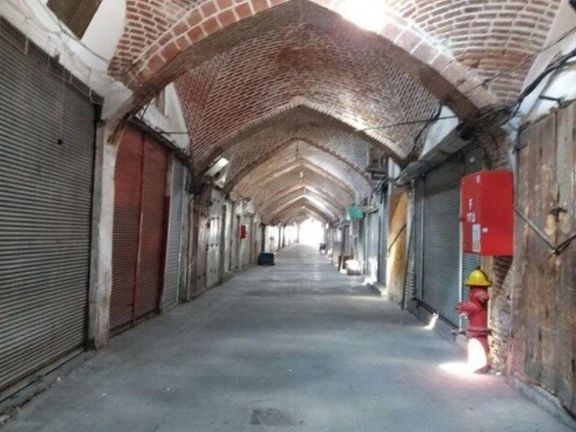
In cold weather and rain, Iranians poured into streets Monday evening to hold antigovernment rallies following students' sit-ins and strikes flaring up across the country.
Iranians embarked on a three-day action on Monday with the calls focused on strikes for December 5 and 6 and rallies for December 7, Student Day in Iran, which marks the anniversary of the 1953 murder of several students at University of Tehran. It is a traditional day of nationwide rallies. To coincide with Student Day, protesters have also called for strikes by businesses and a rally towards Tehran's Azadi (Freedom) Square.
Students in many universities across Iran did not show up for classes on Monday and in some campuses, they held sit-ins and rallies to protest against the Islamic Republic and its repression machine.
Meanwhile, many shops and businesses shut their doors in a nationwide action that was so stunning that the country’s judiciary had to come up with a new propaganda line to justify the strikes. Iran's Chief Justice Gholam-Hossein Mohseni-Ejei blamed "rioters" for threatening shopkeepers. Hardliners led by the Revolutionary Guard call protesters “rioters” and “thugs”.
Emphasizing that the death sentences of several protesters have been confirmed and they will be executed soon – apparently meant to scare the demonstrators to stop their movement to oust the regime -- he added shopkeepers who close their businesses would be swiftly dealt with by the judiciary and security bodies.
Authorities also sealed a jewelry shop and restaurant belonging to Iranian football legend Ali Daei after he closed his businesses to join antigovernment strikes. Since the beginning of the uprising sparked by the death of Mahsa Amini in custody of the hijab – or the so-called “morality” police -- in mid-September, strikes have been staged in support of street protests. The authorities have kept threatening businesses that if they close in support of the protests, they will be fined, or their businesses will be sealed as punishment.
Despite Internet restrictions in many regions of the country, social media is exploding with videos of closed shops in bazaars and markets in a lot of cities and towns. Stores were shut in Tehran's Bazaar, and other large cities such as Karaj, Esfahan, Mashhad, Tabriz, Shiraz, Bojnourd, Kerman, Sabzevar, Ilam, Ardabil and Lahijan. The list of cities goes on as more videos are still being shared online.
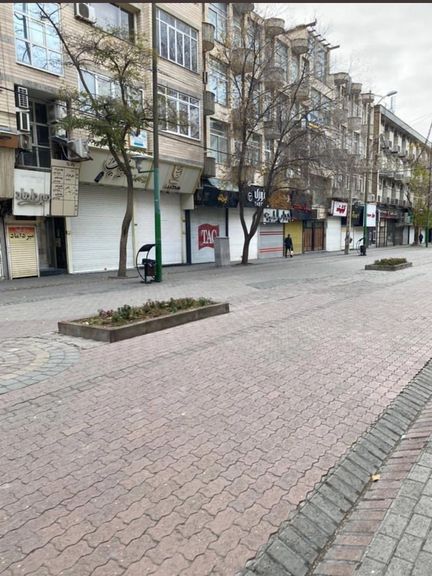
The strikes were especially widespread in Kurdish-majority cities. Hengaw, a Norway-based rights group which monitors abuses in Kurdish areas, reported that 19 cities had joined the strike movement in western Iran, where most of the country's Kurdish population live.
When night fell, however, the same streets that sounded so calm during the day became scenes of antigovernment protests with people chanting slogans against the regime. People in several neighborhoods in large cities, such as the capital Tehran and religious city of Mashhad, blocked roads while chanting slogans and waiting for the security forces to appear. The first rain and snowfall in many cities have led to slippery roads, which protesters relish as a hurdle for the regime’s agents riding on motorcycles. In some social media videos, shots are heard with people saying that security forces opened fire at them.
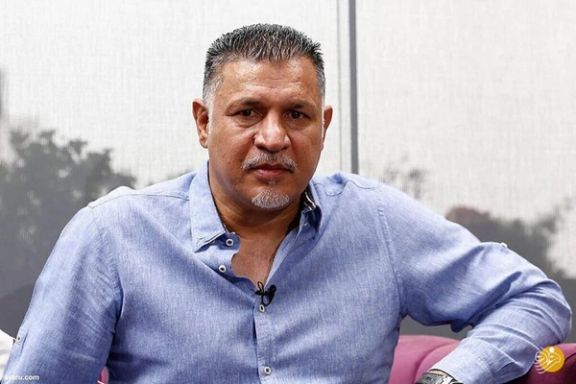
Security forces have reportedly sealed a jewelry shop and restaurant belonging to Iranian football legend Ali Daei after he shut down his businesses to join anti-government strikes.
ISNA news agency reported Monday that the ex-footballer’s shop and restaurant in northern Tehran was shut upon official orders.
“Following the support for anti-government groups’ call on social media to disrupt peace and business of the market, a judicial order was issued to seal Noor Jewelry Gallery,” ISNA reported.
It also added that a restaurant belonging to Daei had also been ordered shut providing no further details.
Last week Daei revealed threats against him after throwing his weight behind the protests triggered by the death of Mahsa Amini in mid-September.
The nationwide protests in Iran have continued for 80 days with regime forces killing hundreds of people and detaining thousands of others, including football players and celebrities.
Earlier, Ali Daei decided not to travel to Qatar to attend the current World Cup due to the brutality and deadly force used by the government against unarmed protesters.
Many other legendary Iranian soccer players such as Mahdi Mahdavi-Kia, Karim Bagheri, Ahmad Reza Abedzadeh, etc., are supporting the protest movement.
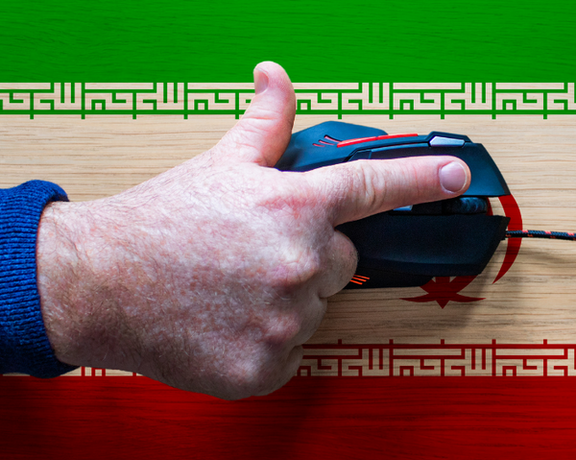
Regime-backed hackers in Iran have targeted several activists, journalists, researchers, academics, diplomats and politicians, Human Rights Watch has said.
The rights watchdog said Monday that two of its staff members and at least 18 other high-profile activists have been targeted by a phishing campaign.
The email and other sensitive data of a correspondent for a major US newspaper, a women's rights defender in the Persian Gulf region and Nicholas Noe, an advocacy consultant for Refugees International based in Lebanon, have been compromised by APT42.
An investigation, launched by HRW and Amnesty International, revealed that the phishing attack was probably conducted by a group known as APT42 which is affiliated with the Iranian regime.
“Iran’s state-backed hackers are aggressively using sophisticated social engineering and credential harvesting tactics to access sensitive information and contacts held by Middle East-focused researchers and civil society groups,” stated Abir Ghattas, information security director at Human Rights Watch.
Ghattas further noted that it significantly increases the risks that journalists and human rights defenders face in Iran and elsewhere in the region.
The APT42 earlier targeted medical research companies in the United States and Israel in late 2020, and academics from France, and the Middle East in 2019.
They have also attacked the media sector and interfered with the presidential elections in the United States.

Iran's Chief Justice says death sentences of several protesters have been confirmed and they will be executed soon.
Gholam-Hossein Mohseni Ejei stated Monday that “rioters” will be promptly dealt with by the judiciary and security organizations. Ejei further went on to express that the protesters who have been condemned to death would soon be executed.
It is not clear whether prisoners whohave been formally sentenced would have any remaining right to appeal.
Iran’s use of the death penalty for protesters has been sharply criticized by the United Nations while some countries and many right groups have also condemned the move.
According to Amnesty International at least 28 inmates currently face execution for participation in the demonstrations, including three minors.
Meanwhile, the Revolutionary Guard released a statement to praise the judiciary’s decision urging it to decisively issue verdicts against “defendants accused of crimes against the security of the nation and Islam.”
“The country's security, intelligence, law enforcement and mobilization forces will not hesitate to deal decisively with rioters, thugs and the terrorists hired by the enemy,” Tasnim News Agency quoted the IRGC as saying.
Hardliners led by the IRGC call protesters “rioters” and “thugs”.
The threats by the Judiciary and the IRGC come amid nationwide strikes by workers and businesses to overthrow the clerical regime.
Many believe such remarks following the calls for three-day strikes and protests across the country are to scare the demonstrators to stop their movement to oust regime.

Anonymous underground grassroots groups formed across Iran during the past two months to organize antigovernment protests have joined hands for the same cause.
Until the call last week for three days of strikes and protests that began Monday, these young activists were serving as the unofficial leaders of movement, mobilizing thousands of people across the country through social media. But recently, the groups from at least 30 cities have formed an alliance.
The names of almost all these groups follow a simple formula adopted in the capital - Youth of Tehran Neighborhoods – or simply Tehran Youths (Javanan-e Tehran). Initially, this group was organizing rallies in Tehran and other cities and towns. Soon after, groups with similar names sprang up around the country and coordinated their announcements with the Tehran group.
The antigovernment protests in Iran often had no known leaders in the past five years, with all independent groups and political parties banned and disbanded long ago. Therefore, such grassroot groups seem to represent a new opposition force successfully issuing calls for demonstrations nationwide. The mobility of protesters and their distribution in various neighborhoods has now turned into a big problem for the security forces who are seen in some videos aimlessly running around to confront protesters and exhausting themselves even more after long hours of deployment.

These groups somewhat differ in tone and language visible in their statements, but they are unanimous in their goal to overthrow the Islamic Republic and all committed to their motto: Women, Life, Liberty. Some of these groups have issued about 20 statements so far but their first statement as a united front was released for the three-day action on December 5, 6, and 7. December 7 is Student Day in Iran and marks the anniversary of the 1953 murder of several students at University of Tehran. It is a traditional day of nationwide rallies. To coincide with Student Day, protesters are calling for strikes by businesses and a rally towards Tehran's Azadi (Freedom) Square, according to posts shared on Twitter.
In their statement, they called on all other groups who believe in "a democratic Iran with all its territorial integrity and based on universal human rights" to join them to help "overthrow the despotic Islamic regime.”
However, Iranian dissidents everywhere and outside these groups, although all support the underground activists. Numerous hacktivist groups and student groups have been fighting against the regime since the early days of the movement. In a recent move, Iranians have started using the Darknet, a shadow realm within the internet, to publish home addresses and cell phone numbers of members of Iran’s IRGC, its Basij militia and police forces who are oppressing and attacking protesters to enable the public to seek out revenge.
Israeli cyber intelligence firm Deep Void, whose founders have a background in Israeli intelligence, has revealed the phenomenon in which Iranian protesters are using the darknet to fight back against the regime’s agents, who during past protests could attack protesters and then disappear into anonymity.